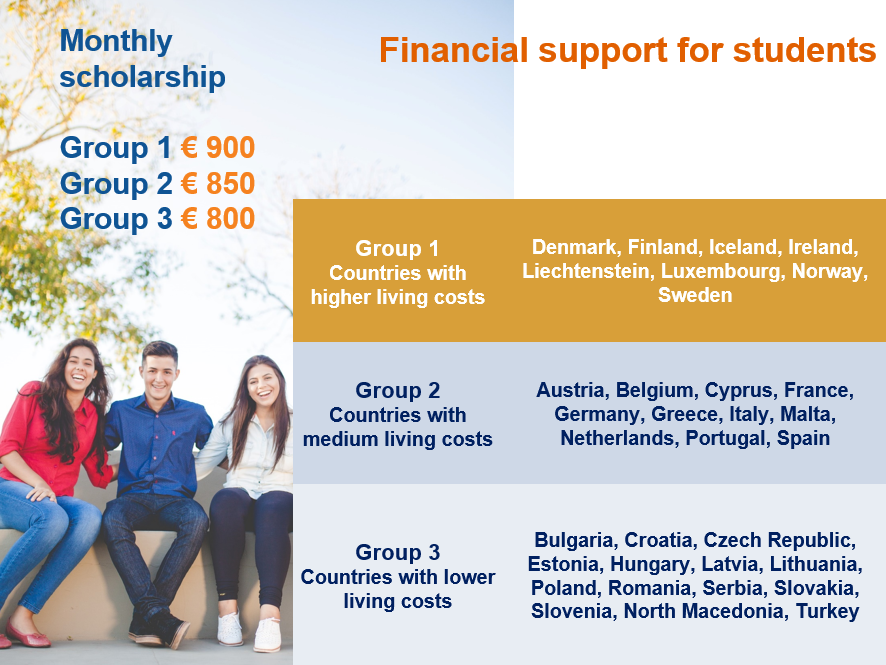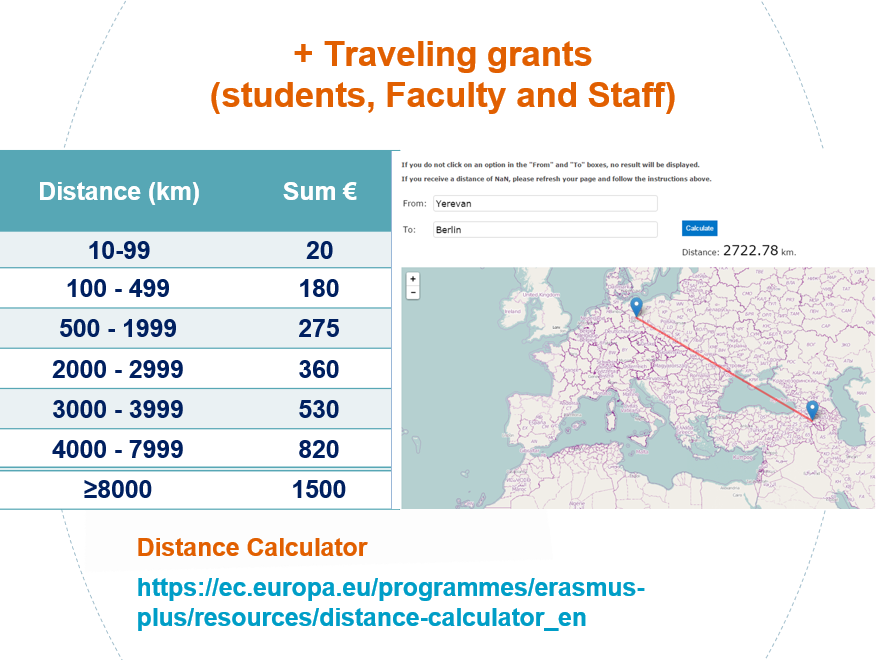To participate in an Erasmus+ International Credit Mobility (academic exchange) as a student, an applicant must be registered in a higher education institution and enrolled in studies (Bachelor, Master and PhD level) leading to a recognised degree. But first and foremost, both home and host universities should successfully apply for the Erasmus+ Call for Applications under KA171 and secure project grant in order for their students to be able to participate in an exchange and receive an Erasmus+ scholarship. The sending and receiving Universities must have signed an Inter-Institutional Agreement.
To participate in Erasmus+ mobility, the students should follow University competition announcements published regularly by their International Relations Offices or Departments at the institutional websites, social media channels (Facebook), mailing lists or department wallpapers. Application documents required for the competition are defined either by the sending University or both sending and hosting Universities.
An important precondition for International Credit Mobility is the comparability of the learning outcomes in courses offered by the host university and the home University curriculum that leads to accumulation and recognition of ECTS credits.
BA students are eligible to apply for the mobility from the second year of their studies inclusively, but they cannot participate in the mobility competition in the final semester of the graduate year (at all three educational levels). The period of study abroad must be relevant for students’ degree-related learning and personal development needs, and be part of the academic program they are enrolled in.
The duration of Erasmus+ student mobility can last from a minimum of 2 months to a maximum of 12 months. The duration of mobility at one educational cycle should not exceed 12 months. Students can benefit of an exchange abroad with Erasmus+ multiple times but their total time abroad (study abroad periods included) may not exceed 12 months within one cycle of study. However, based on the principles of diversity, inclusion and equity, Universities are encouraged to establish policies that provide equal access to a larger number of mobility participants from diverse backgrounds at each educational cycle.
A “Cycle” refers to the level of study as defined by the European Qualifications Framework (EQF):
-
- First cycle (Bachelor or equivalent) EQF – 5/6
- Second cycle (Master or equivalent) EQF 7
- Third cycle (PhD/Doctoral or equivalent) EQF 8
Before the study abroad period:
- The student, the sending and receiving higher education institutions must sign a Learning Agreement for Studies to ensure a transparent and efficient preparation of the exchange abroad, as well as to agree on how activities successfully completed abroad will be recognised. This document sets out rights and responsibilities of the various parties. You can find a sample form of the completed Learning Agreement here.
- Students will receive the Erasmus+ Student Charter, explaining their rights and obligations with respect to the period of study abroad.
After the study abroad period:
- The receiving higher education institution must provide the student and his/her sending institution with a transcript of records confirming that the agreed programme has been completed and acknowledge the results.
- Your higher education institution must recognise the credits (using ECTS credits or an equivalent system) as agreed in the Learning Agreement before the mobility and count them towards your degree, without any further requirements.
Read more on the Guidelines on how to use the Learning Agreement for Studies
The student will receive an Erasmus+ grant that will cover travel and subsistence expenses. It may vary depending on the cost of living in the host country, the distance between the sending and receiving countries, the number of students applying, and the availability of other grants. Fixed grant limits for exchanges between sending and host countries can be found in the Erasmus+ Program Guide.
The successful applicant signs a grant agreement with the University at an EU Member State or a third country associated with the Program, which specifies the duration of the mobility, the amount of the grant and other rights and obligations. The sending and receiving Universities will jointly decide on which party will make the payment transactions.
During the mobility at the host university, an Erasmus+ student is exempted from tuition, registration, examination fees, laboratory or library fees . Small fees may apply for insurance or student union membership.
Note: Students with special needs or from socially disadvantaged backgrounds can benefit from additional funding opportunities, as 40% of the Erasmus+ International Credit Mobility budget must be allocated to promoting inclusion and equity.
For further information on available exchange opportunities and application procedure please contact the International Relations Office of your higher education institution. The contacts of IROs or other units responsible for Erasmus+ International Credit Mobility at Armenian Higher Education Institutions can be found here.



